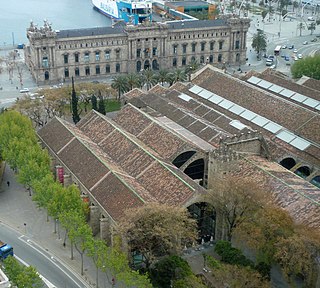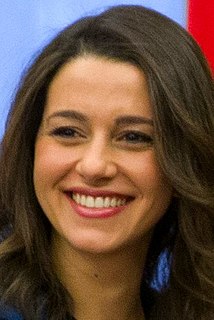
Catalonia was first settled during the Middle Palaeolithic era. Like the rest of the Mediterranean side of the Iberian Peninsula, the area was occupied by the Iberians and several Greek colonies were established on the coast before the Roman conquest. It was the first area of Hispania conquered by the Romans. It then came under Visigothic rule after the collapse of the western part of the Roman Empire. In 718, the area was occupied by the Umayyad Caliphate and became a part of Muslim ruled al-Andalus. The Frankish Empire conquered the area from the Muslims, ending with the conquest of Barcelona in 801, as part of the creation of a larger buffer zone of Christian counties against Islamic rule known as the Marca Hispanica. In the 10th century the County of Barcelona became progressively independent from Frankish rule.

Catalan Countries refers to those territories where the Catalan language, or a variant of it, is spoken. They include the Spanish regions of Catalonia, Valencia, the Balearic Islands and parts of Aragon and Murcia, as well as the department of Pyrénées-Orientales in France, the Principality of Andorra, and the city of Alghero in Sardinia (Italy). In the context of Catalan nationalism, the term is sometimes used in a more restricted way to refer to just Catalonia, Valencia and the Balearic Islands. The Catalan Countries do not correspond to any present or past political or administrative unit, though most of the area belonged to the Crown of Aragon in the Middle Ages. Parts of Valencia (Spanish) and Catalonia (Occitan) are not Catalan-speaking.

The Democratic Convergence of Catalonia, frequently shortened as Convergence was a Catalan nationalist, liberal political party in Catalonia (Spain), currently still existing without any political activity.

The Catalan independence movement is a social and political movement with roots in Catalan nationalism, which seeks the separation of Catalonia from Spain, along with some in the movement supporting the separation of North Catalonia from France and that of other Catalan Countries.

The Catalonia national football team is the official football team of Catalonia. It is organised by the Catalan Football Federation, founded in 1900. The team has been referred to by various names including Selecció Catalana, Selecció de Barcelona and the Catalan XI.
El Periódico de Catalunya is a morning daily newspaper based in Barcelona, Catalonia, Spain.

The Catalan language originated from Vulgar Latin in the Pyrenees Mountains between France and Spain. It diverged from the other Romance languages in the 9th century. At that time, Catalan spread quickly throughout the Iberian peninsula when the Catalan counts conquered Muslim territory. By the 11th century, the Catalan language was present in several feudal documents. Catalan was present throughout the Mediterranean by the 15th century. At that time, the city of Valencia was thriving.

The 2015 Catalan regional election was held on Sunday, 27 September 2015, electing the 11th Parliament of the autonomous community of Catalonia. All 135 seats in the Parliament were up for election. This was the third regional Catalan election in only five years, after the 2010 and 2012 elections and the first one in over 37 years in which Democratic Convergence of Catalonia (CDC) and Democratic Union of Catalonia (UDC) ran separately, after the dissolution of Convergence and Union (CiU) in June 2015 over disagreements on the coalition's separatist turn.

Inés Arrimadas García is a Spanish lawyer and politician serving as Member of the Congress of Deputies and Spokesperson of Citizens party in the Congress. She was previously the leader of the regional branch of the party in Catalonia. In March 2020, she was voted party leader.

Ana María Martínez Sagi was a Catalan poet, trade unionist, journalist, feminist and athlete of Republican Spain.
Democrats of Catalonia is a Christian-democratic, pro-Catalan independence political party in Catalonia founded in July 2015 from a split in Democratic Union of Catalonia (UDC). Its members included the then-Speaker of the Catalan parliament Núria de Gispert and former UDC president Joan Rigol.

Junts pel Sí was a Catalan electoral, political and parliamentary alliance focused on achieving the independence of Catalonia from Spain. Established ahead of the 2015 Catalan regional election, it was formed by Democratic Convergence of Catalonia (CDC), Republican Left of Catalonia (ERC), Democrats of Catalonia (DC), Left Movement (MES) and Independence Rally (RI.cat), as well as a number of independent personalities from pro-independence sectors of civil society, including the pro-independence organizations Catalan National Assembly, Òmnium and the Association of Municipalities for Independence. The Popular Unity Candidacy (CUP) had been invited to participate in the alliance, but refused to do so and ran on its own instead, citing its disagreement with the presence of politicians in the list.

The Maritime Museum of Barcelona is located in the building of Drassanes Reials de Barcelona, the royal arsenal of Barcelona, dedicated to shipbuilding between the thirteenth century and eighteenth century. The first mention of these arsenals date from 1243 in a document indicating the boundaries of the city of Barcelona where it mentions its shipyard.

Left Movement is a social-democratic, pro-independence political party in Catalonia. The party was founded in November 2014 from the merger of New Catalan Left (NECat) and Catalonia Movement, which had both been formed by dissident members of the Socialists' Party of Catalonia (PSC) who were dissatisfied with what they saw as the party's lack of support for the independence movement. Its founders included Marina Geli and Ernest Maragall (NECat), but both have ever since left for other parties—Geli joined the Together for Catalonia alliance ahead of the 2017 Catalan regional election, whereas Maragall defected to Republican Left of Catalonia (ERC) in 2018.

The 2017 Catalan regional election was held on Thursday, 21 December 2017 to elect the 12th Parliament of the autonomous community of Catalonia. All 135 seats in the Parliament were up for election. The election was called by Spanish prime minister Mariano Rajoy after the invocation of Article 155 of the 1978 Spanish Constitution to enforce direct rule in Catalonia and the subsequent dismissal of the Catalan government under President Carles Puigdemont. The three pro-Catalan independence parties won a slim majority of parliamentary seats, claiming 70 out of 135, but fell short of a majority in the popular vote by securing 47.6% of the share.
Republican Left of Catalonia–Catalonia Yes is a Catalan pro-independence electoral alliance. The alliance is formed by Republican Left of Catalonia, Catalonia Yes and independents, and in the 2015 and 2016 Spanish general elections it was led by Gabriel Rufián.
The Catalan European Democratic Party, initially branded as the Catalan Democratic Party, is a Catalan nationalist and liberal political party in Spain that supports Catalan independence. The party was founded in Barcelona on 10 July 2016, and is regarded as the successor party to Democratic Convergence of Catalonia (CDC).

Together for Catalonia is an electoral and parliamentary alliance in Catalonia, registered as a political party in the interior ministry in July 2018, originally envisaged as a platform comprising the Catalan European Democratic Party (PDeCAT), successor of the late Democratic Convergence of Catalonia (CDC), and independents and centered around the candidacy of former Catalan president Carles Puigdemont ahead of the 2017 Catalan regional election. Some of these independents went on to form the Action for the Republic (AxR) political party, which is also part of the alliance in the Parliament of Catalonia.

The National Call for the Republic is a pro-independence, big tent political party in Catalonia. It aimed at uniting pro-independence political parties and organisations throughout Catalonia towards the common goal of establishing a Catalan Republic, regardless of political ideology. Its members included both independent figures from the civil society and aligned to the Together for Catalonia (JxCat) alliance—such as Quim Torra or Jordi Sànchez—as well as prominent members of the Catalan European Democratic Party (PDeCAT), among others: former Catalan president Carles Puigdemont, former regional ministers Josep Rull, Jordi Turull and Laura Borràs or party vice-president Míriam Nogueras.

Alfred Bosch i Pascual is a Catalan academic, journalist, author, politician and a former Minister of Foreign Action, Institutional Relations and Transparency of Catalonia. He was previously a member of the Congress of Deputies of Spain and a member of Barcelona City Council.
















